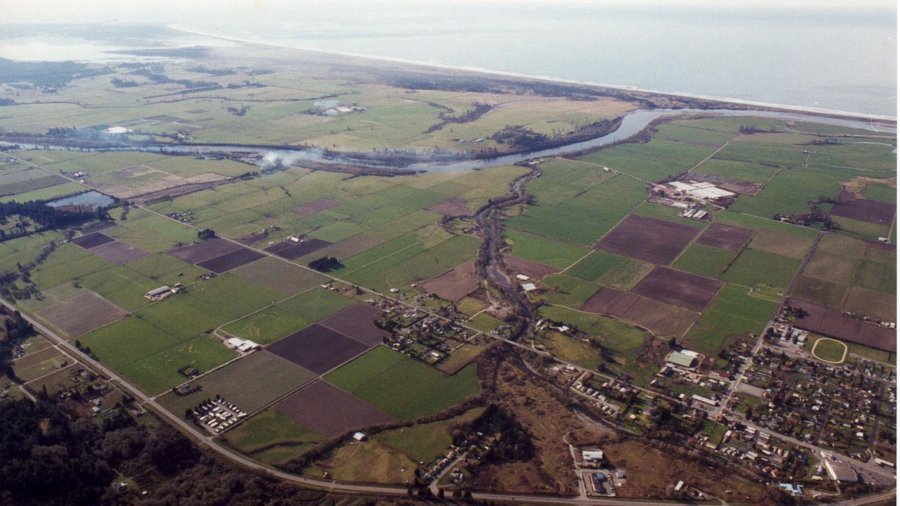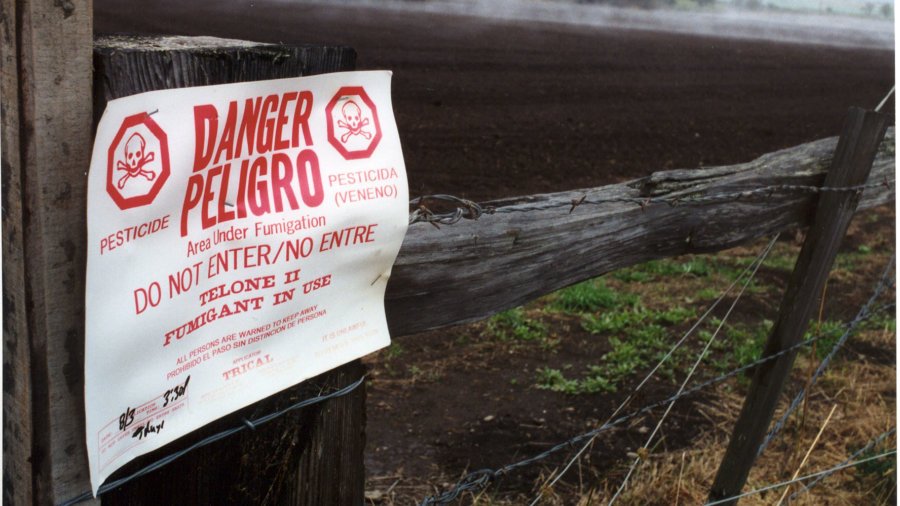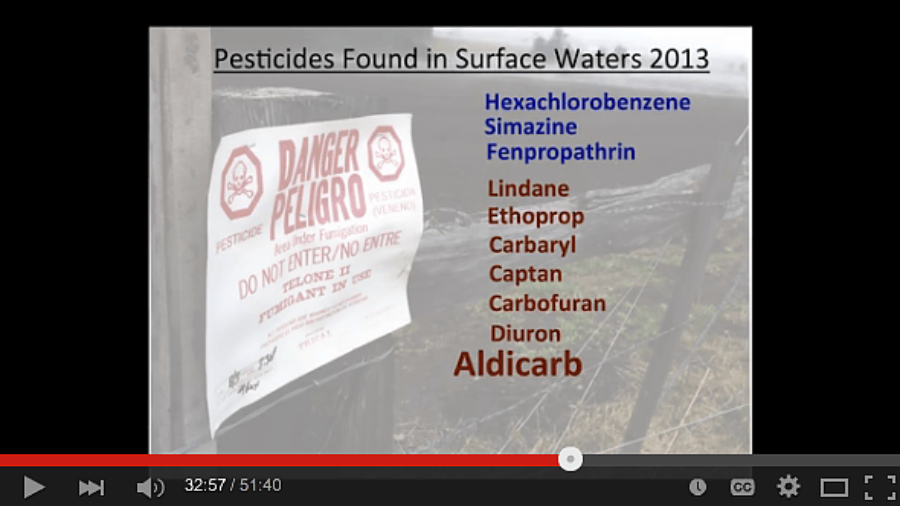Despite finding 17 pesticides in estuary waters and 10 instances of contamination, Water Board has no plans to rein in chemical use In late January, 2018, the state agency charged with enforcing the federal Clean Water Act released a long-awaited report on the results of two years of water quality testing in the Smith River Estuary. The testing detected 17 pesticides in the streams, creeks and ditches that feed the estuary, and 10 instances of contamination of the aquatic food chain. The findings appear to show that Easter lily farmers are in violation of the Clean Water Act, which was passed in 1972 in large part to protect precious aquatic resources such as the West Coast’s dwindling salmon populations.
Easter Lily Feature Articles
It’s probably safe to say that no one likes using pesticides. Even Easter lily farmers have told me that “we don’t like using them,” adding that they have “no choice.” The lily bulb crops would be ruined, they say, without the 300,000 pounds of dangerous chemicals they apply each year to farmlands that surround the Smith River estuary and border residential neighborhoods and an elementary school.
Certainly farming is economically fraught. The weather, the pests, the whims of fickle consumers. Individually and combined, the challenges facing farmers are many. Read More
In late 2016 Siskiyou Land Conservancy released our Smith River Community Health Assessment, which clearly demonstrates significant human impacts of pesticides used on Easter lily fields. That report is now available here. Why are county health officials, and the California Department of Pesticide Regulation, ignoring the report? Click here to read more Read more
In late 2016 Siskiyou Land Conservancy released our Smith River Community Health Assessment, which clearly demonstrates that pesticides used in the cultivation of Easter lily bulbs in, Del Norte County, are impacting the health of people who live in the small town of Smith River.
Just before Easter, the national on-line news magazine TakePart has run a major story about pesticides used on the Smith River Plain to grow Easter lilies. TakePart describes itself as “the digital division of Participant Media,” the company that brought us such films as Academy Award winning Spotlight, as well as An Inconvenient Truth and CITIZENFOUR.
The Sustainable Technology & Policy Program at UCLA recently released a report that shows a combination of three commonly used, carcinogenic fumigants — two of which, metam sodium and 1,3-dichloropropene, are used in high concentrations on the Smith River Plain — “can interact to synergistically (to) increase the toxicity to humans.” What that means is that the whole carcinogenicity is greater than the sum of the carcinogenic parts.Read More
Our presentation on pesticide use at the Smith River estuary is now up on YouTube.Read More
State and federal regulators charged with protecting public trust values — such as clean air and water, healthy wildlife, and human health — are apparently uninterested in enforcing laws that should protect the estuary. It was in spring of 2014 that Siskiyou Land Conservancy obtained the clearest evidence that pesticides are indeed poisoning one of Read more




